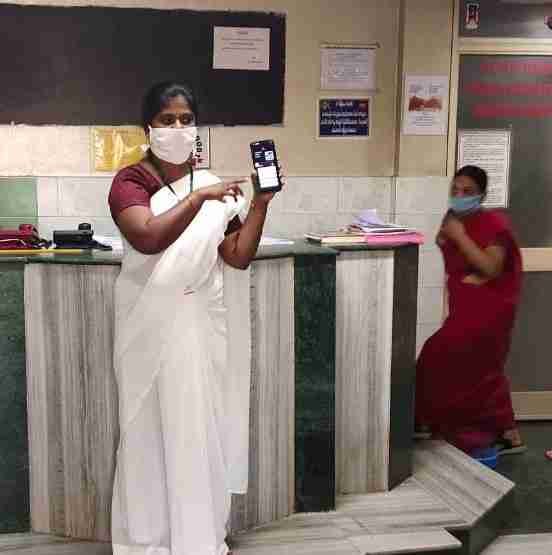20 July 2020
Pregnancy-related anxiety has shot up because of COVID and needs to be recognised and addressed.
The number of people with COVID–19 continues to spike in India. The Hindu (www.thehindu.com) reports that the number of people who have tested positive for the coronavirus has been nearly 2000 a day for three days straight. The Health Department has confirmed 408 COVID–19–related deaths so far in the state. Krishna district where Kushal is present has been hit hardest with a 3.17% death rate. Not surprisingly, COVID-19 anxiety in pregnancy has skyrocketed in Andhra Pradesh.
Communities in Andhra Pradesh are concerned. In ordinary circumstances, perinatal mood and anxiety disorders are among the most common complications in pregnancy or the first 12 months after delivery (The American College of Gynaecologists and Obstetricians). And these are unprecedented times.
Our beneficiaries are worried, and there is little recourse to advice and comfort because of the strict lockdown being enforced. Antenatal services have been stripped resulting in limited access to information and education. Kushal India is proactively filling the gap by responding to requests with urgency and using digital technologies to surpass these barriers.
Poorer communities are affected the most. All Anganwadi Centres in the state where women from disadvantaged communities generally access government antenatal services have been shut down. We are supporting the local health department to reach out to 700 pregnant women who are linked to urban health centres on their mobile phones with counselling and befriending sessions.
A problematic question colleagues working on the front line are increasingly facing these days is -
“Amma, if I get infected, can I pass the coronavirus to my unborn baby? Will that lead to my child having problems or deformities in the future? My mother-in-law has suggested that I should terminate my pregnancy.”
Difficulty in accessing reliable information and having to take recourse to attention-grabbing headlines in the media has spread misinformation and consequently led to fear and panic in communities. Most of our beneficiaries are first-time pregnant and young. To have to be under pressure to resort to termination because of myths and misinformation is unfortunate.
We make sure to advise women –
- The COVID-19 pandemic is a rapidly evolving situation and each day scientists and researchers are learning more on how to prevent and mitigate the impact of the virus. New information comes out nearly every day and at times can contradict previous knowledge. So, it is important to remain updated on information.
- However, it is crucial that you seek information from reliable and reputable sources, e.g. WHO, UNICEF and the National Health Mission.
- If you come across a piece of information in the media and especially social media such as YouTube that makes you curious or worries you, please verify that information from reliable and authentic sources. Do not act on a single source of information.
- Do not be hasty in taking actions or decisions. Verify your doubts. Consult your doctor first.
To read more about our activities, please click here.



